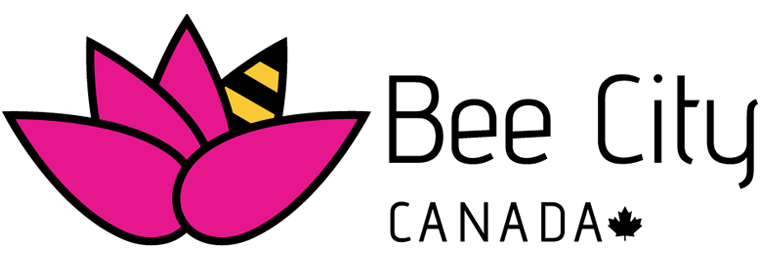Milestones
In 2021 the Green Task Force Committee worked closely with Mayor and Council to designate the City of Belleville as a Bee City. This designation works alongside actions the City of Belleville has been undertaking which includes healthy pollinator habitats, educating the community about the importance of pollinators, and celebrating pollinators. Bee City Canada is a program of Pollinator Partnership Canada. The City of Belleville is actively working on initiatives to preserve and enhance pollinator areas and park spaces.
What you can do at home
Maintaining future plant populations and global food crops takes a team and pollinators need our help! Important actions residents can take at home include creating pollinator gardens on your property at home.
- Instead of large grass areas consider native pollinator gardens. The City recommends patches no larger than 10 square metres, preferably in the side or rear yard and a metre away from property lines.
- Here is a helpful pollinator guide to ensure you are selecting appropriate native plants in your garden. This guide will also help identify different pollinators in your garden, they are not only bees!
What the City is doing
| Pollinator Week (June 20-26) |
| To kick off Pollinator Week the Green Task Force Committee is hosting a Pollinator Event on June. 18, 2022 and are encouraging residents to come out and join the event. |
| No Mow May |
| Is an initiative that encourages residents and property owners to partake in relaxed maintenance efforts; letting your lawn reach 4-6 inches tall before cutting, this will also helps to keep your grass healthy in times of drought. While respecting the City's Property Standards and Clean Yards bylaws. |
| Let it Grow |
| Is an initiative where a select area of city property is designated to support pollinators and wildlife by practising relaxed maintenance efforts and letting the natural vegetation grow, we currently have about 8 hectares so far! |
| Leave the Leaves campaign |
| The Let it Grow Campaign encourages residents to leave the leaves as pollinators begin their lives in the leaves as larvae and provide pollinators with cover during the winter season. Leaves can be mulched and act as natural fertilizer for your yard and plants. |
| Seedling Giveaway |
| A collaborative effort with Quinte Conservation and the City of Belleville which aims to educate residents and provide resources to plant their own seedlings. |
| Pollinator Gardens |
| East Zwicks Trail alongside the Bay of Quinte serves as a prime example of where our pollinator beds blossom. In this location specifically there is five types of wild clover and a wild flower seed mix to assist with the establishment of this wildflower meadow. |
| Community Gardens |
| Our Community Gardens provide an opportunity for residents to enjoy the outdoors and plant organic local produce and native flowers. |
| Urban Tree Canopy and Natural Vegetation Policy |
|
The city's Urban Tree Canopy and Natural Vegetation Policy developed in 2019 which continues to collect data and develop a tree inventory. |
| Tree Planting |
| In efforts with our community partners such as Rotary Loves Trees and TD Trees we continue to maintain the city’s commitment to plant tree and increase our tree canopy. |
The importance of pollinators
- There are thousands of pollinators in Canada; such include butterflies, moths, beetles, flies, hummingbirds and over 800 species of bees.
- Pollination is the process of transferring pollen grains from the male parts of one flower known as the anther to the female part of another flower known as the stigma.
- Pollinator agents allow the transfer of pollen to occur, pollinator agents can be wind, or water however more commonly insects such as the ones mentioned above do the job!
- We are dependent upon pollinators, as they support the production of much of the food we eat and natural habitants we enjoy.


